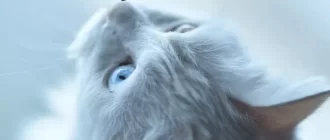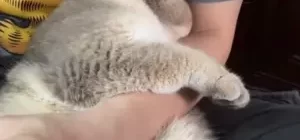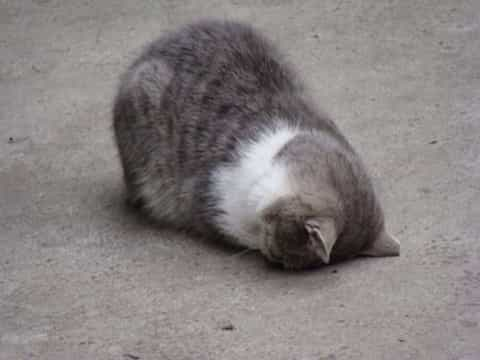Thankfully, there are some ways you can get rid of those odors quickly and easily. But first, you need to find the source of the odors and fix it.
1. Vacuum
Often, pet owners find that after vacuuming their home, there is a distinct smell that lingers. This is because when you vacuum, your machine picks up dirt, dander, and pet hair which causes the smell to build up in the canister.
Changing the canister frequently is the most simple way to prevent this from occurring. When you change the canister, you are ensuring that all of the smelly contaminants are removed from the machine and your home.
It is also important to clean your vac regularly. This will ensure that your home is smelling fresh and you are not picking up the same pet odors again and again.
Another excellent natural way to get rid of cat urine odor is to use vinegar and baking soda. Vinegar works as a neutralizer to remove the alkaline salts that are left behind in dried cat pee.
2. Enzyme Cleaner
Enzyme cleaners are a safe and natural option that are more effective than harsh chemical-laden products. They also do a better job of getting to the root of cat urine odors.
They work by breaking down odor-causing molecules in the carpet, and then allowing bacteria to consume them. This keeps the carpet fresh and helps to discourage repeat marking in that spot.
These are nontoxic, safe to use around children and pets, and are a great option for those who have allergies or asthma.
Unlike most other cleaners, enzyme-based cleaners are made specifically for pet accidents. They work on a variety of stains, including pee, poop, vomit, blood, and drool.
These stains aren’t always easy to remove. They tend to wick up from the surface and can be difficult to get to the root of. Therefore, it’s important to apply an enzyme cleaner to a stained area properly. Unless the enzyme cleaner completely envelopes the entire stain, it won’t work.
3. Vinegar
Vinegar is a natural deodorizer and can be a very effective way to get rid of cat urine odor. It has the added benefit of being able to help disinfect the area that is affected by the odor.
Vinegar’s acidity breaks down the alkaline salts that are left behind in dried urine.
It can also help prevent the odor from reoccurring.
As an added bonus, vinegar has the added benefits of preventing bacteria from growing and helping to keep your home clean.
You can use a combination of distilled white vinegar and water as a natural cleaner to deal with the lingering smell of cat pee in carpets, fabrics and even mattresses.
Then, sprinkle baking soda on the area to absorb any remaining odors and then vacuum. This will help to neutralize the cat pee odor for good. Lastly, you can try an enzyme-based cleaning product for odor elimination in your carpets and furniture. These products break down the uric acid that is present in cat urine, and they’ll remove the odor at the same time.
4. Baking Soda
When it comes to neutralizing foul odors, baking soda is the best bet. It’s a versatile, eco-friendly ingredient that cuts through grease and grime on its own or when combined with other cleaning products.
Baking soda can also be a natural deodorant. Simply sprinkle it on any soiled area and let it sit for 15 minutes to a few hours, depending on the severity of the smell.
It also helps to soak up cat urine odor in bedding and clothes. You can add a half cup of baking soda directly to the drum of your washer or use a laundry detergent that has baking soda in it.
You can even use it to freshen up your shoes if they’ve become smelly from walking around with them on. To do this, pour 2 tablespoons of baking soda into two cheesecloths or thin pieces of fabric and secure them with a rubber band or string. Place one of these bags inside each pair of shoes whenever you’re not wearing them to keep them smelling fresh and odor-free.





